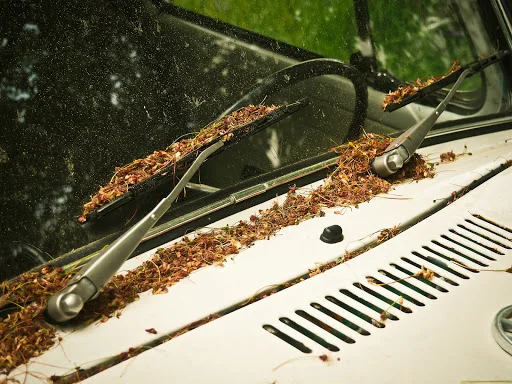Finally! A glimmer of hope at the end of a polar vortex! Spring is coming early!
On Saturday, February 2, 2019, Americans were crossing their fingers and waiting on bated breath for Punxsutawney Phil to make his annual Groundhog Day prediction. As tradition dictates, if the groundhog sees his shadow and goes back into his burrow, there will be 6 more weeks of winter. But, if he doesn’t see his shadow and stays outside, spring will come early. And if you haven’t already heard, Phil did not see his shadow!
Punxsutawney Phil might just be the best meteorologist in America because Michiganders have been enjoying warm temperatures this week. Monday reached a high of 54 °F, which after the subzero temperatures the day before, made it feel like a heatwave hit Metro Detroit! But just because spring is coming early, doesn’t mean winter is over just yet. There may not be a blizzard on the horizon, but Metro Detroit is experiencing an ice storm. According to The National Weather Service (NWS), “Freezing rain develops as falling snow encounters a layer of warm air deep enough for the snow to completely melt and become rain. As the rain continues to fall, it passes through a thin layer of cold air just above the surface and cools to a temperature below freezing. However, the drops themselves do not freeze, a phenomenon called supercooling (or forming "supercooled drops"). When the supercooled drops strike the frozen ground (power lines, or tree branches), they instantly freeze, forming a thin film of ice, hence freezing rain... Ice storms result from the accumulation of freezing rain.”
The NWS also mentions that, “Ice storms can be the most devastating of winter weather phenomena and are often the cause of automobile accidents, power outages and personal injury.” In 2014, The Bureau of Labor Statistics (BLS) reported that 42,480 work injuries involved ice, sleet, or snow. 2,040 of them were Michigan work injuries. The report also indicates that the injuries resulted from, “falls, slips or trips; overexertion and bodily reaction; transportation incidents; and contact with objects and equipment.”
Icy sidewalks, driveways, and even roads may cause disasters and lead to a higher risk of slips, falls, and even car accidents. Don’t slip into spring; walk and drive slowly.
Slip and falls and car accidents caused by ice may lead to minor injuries such as twisted ankles and scraped knees and to serious injuries like broken bones and even traumatic brain injuries, leaving victims in the hospital for days and out of work for weeks. The Michigan Law Firm, PC provides legal services to those who have been injured in slip and fall accidents and icy car crashes. Call us at 844.4MI.FIRM for a free legal consultation.








